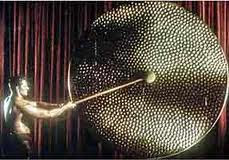 |
| Hitler & Spiridon Louis |
Olympics Photo Quiz 13
Background
Berlin had been due to hold the 1916 Olympics before World War I forced their cancellation. By 1931 Germany once more found itself within the bosom of the international community so that in that year Berlin was awarded the 1936 Games ahead of Barcelona's bid. Dark forces lurked, then strutted, as they planned dismal futures for both cities. By 1933 Hitler was in power in Germany, but despite unease in some quarters about the Nazis' racial policies, whispers of a boycott of the Berlin Games came to nothing. Spain would be absent from the event as it's civil war cranked into deadly gear and the people of Barcelona in particular would come to feel the full punitive force of the Franco led victors of that conflict. It was Hitler who declared the official start of the Berlin Games at the 1936 opening ceremony, before receiving, in what to the modern eye looks like excruciating irony, an olive branch from Spiridon Louis, the Greek winner of the first Olympic marathon at the 1896 Games in Athens.
Olympics Photo Quiz 13
Aside from Berlin, which is the other German city to have hosted an Olympic Games?
The Answer will be published along with the next Highly Questionable quiz and associated blog post.
Olympics Photo Quiz 12 Answer
Muhammad Ali was the iconic sportsman who lit the Olympic flame at the start of the 1996 Atlanta Olympics. Ali, fighting under his previous name of Cassius Clay, had won a gold medal for boxing at the 1960 Rome Games, before embarking on a tempestuous career, that at it's peak, was to see him become probably the most famous human being on the planet.
The author of the Highly Questionable? quiz and trivia blog, Harry Reid, is a freelance question setter, writer and blogger. He can be contacted at harryreid@btinternet.com









